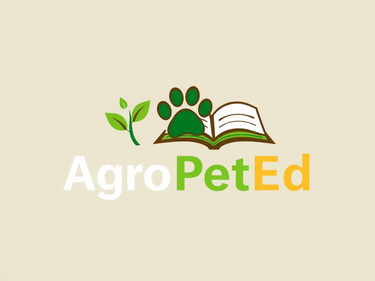
The Importance of Socialization for Dogs at All Life Stages.
Canine socialization is the process through which dogs learn to interact with their environment, other animals, and people. From an ethological perspective, dogs are highly social animals adapted to living in groups.
PETS
6/9/20253 min read
Canine socialization is the process through which dogs learn to interact with their environment, other animals, and people. From an ethological perspective, dogs are highly social animals adapted to living in groups (1). Early exposure of puppies to varied experiences (different people, animals, sounds, and objects) in a positive context enhances their future interaction capabilities (1, 2). Scientific studies show that properly socialized puppies are less likely to develop fears, anxiety, or aggressive behaviors in adulthood (3, 4).
The Critical Socialization Period
In canine development, there is a sensitive socialization period, typically between 3 and 12 weeks of age (5, 6). During this phase, puppies form primary social bonds and adapt more easily to new stimuli. Lack of positive experiences during this critical window can have negative consequences: insufficiently socialized dogs tend to show increased fear or aggression toward everyday situations as adults (5, 6).
For example, a recent study found that dogs adopted before 2 months of age without controlled exposure to stimuli developed higher levels of fear and anxiety compared to those adopted later (7).
Lifelong Socialization: From Puppyhood to Adulthood
While the puppy stage is most crucial, socialization should be a continuous process throughout a dog's life. After 4-5 months (16-20 weeks), dogs continue learning from their environment, though at a slower pace (8). Maintaining an active and stimulating environment in adulthood also positively impacts emotional wellbeing.
Large-scale surveys indicate that dogs with active routines and frequent social experiences tend to exhibit fewer non-social fears (such as noise phobias or fear of novel situations) (9). In other words, a socially enriched lifestyle (play with other dogs, regular training, varied walks) helps prevent anxiety in adult dogs.
Socializing Adult and Rescue Dogs
For adult or middle-aged dogs, socialization may require more time and patience, especially if they've had negative experiences. Using positive reinforcement (toys, affection, treats) helps dogs overcome fears and learn new behaviors (2, 9).
Rescue dogs deserve special attention, as many come from shelters or abusive situations with socialization gaps or trauma. Science shows that adopting too early (before 7-8 weeks) or without gradual socialization increases risks of fear and anxious attachment in adulthood (4, 7).
A 2025 study found that puppies adopted before 2 months displayed more anxious behaviors than those adopted after 4 months (7). This underscores the importance of educating owners about realistic expectations and adaptation routines.
Practical Recommendations for Each Life Stage
1. Puppies (up to ~4 months)
✔ Begin socialization as early as possible (ideally starting at 4-5 weeks), always supervised and respecting vaccination schedules.
✔ Expose puppies to:
People of different ages and genders
Other healthy, vaccinated dogs
Common sounds (vacuum cleaners, car horns, thunder)
Various surfaces (grass, different flooring)
✔ Pair new experiences with positive rewards (e.g., give treats when hearing loud noises)
✔ Avoid prolonged isolation - puppies raised in cages or without human contact develop socialization difficulties (10)
✔ Adopt only after 7-8 weeks - puppies need this time with mother and littermates to learn basic behaviors (11)
2. Adult Dogs
✔ Introduce changes gradually - expose dogs to new people and animals in neutral environments (parks, long walks)
✔ Reinforce positive behaviors with praise and rewards
✔ Maintain exercise routines and mental stimulation (scent games, basic training)
✔ For specific fears (thunder, traffic), use gradual desensitization - controlled exposure paired with positive reinforcement.
3. Rescue Dogs
✔ Create a safe environment - provide a dedicated space (bed, toys)
✔ Introduce gradually to family members and other pets, watching for stress signals (pinned ears, low tail)
✔ Keep consistent schedules for walks, meals, and rest
✔ Start with short outings to quiet places, slowly increasing exposure to new stimuli
✔ Use positive reinforcement - reward calm behavior when encountering novelties
✔ Consider professional help for severe anxiety - veterinary behaviorists or certified trainers can create customized plans
Conclusion
Proper socialization - beginning in puppyhood and continuing throughout life - is essential for dogs' psychological wellbeing. Recent research confirms that early and consistent socialization prevents common behavioral issues (like fear and aggression) and promotes balanced temperament (3, 12).
Through controlled exposure, positive reinforcement, and patience, owners can help their dogs adapt successfully to their environment - whether in puppyhood, adulthood, or after adoption.
📌 Sources: Scientific literature on canine behavior and socialization (3, 4, 9, 12, 13, 14).
(1, 8, 10, 11, 13) Comportamiento social normal en los perros - Propietarios de perros - Manual de veterinaria de Merck
https://www.merckvetmanual.com/es-us/propietarios-de-perros/comportamiento-de-los-perros/comportamiento-social- normal-en-los-perros
(2, 3) Puppy parties and beyond: the role of early age socialization practices on adult dog behavior - PMC
https://pmc.ncbi.nlm.nih.gov/articles/PMC6067676/
(4, 5) Canine Socialisation: A Narrative Systematic Review - PMC
https://pmc.ncbi.nlm.nih.gov/articles/PMC9655304/
(6, 7, 12) The Puppies’ Age at Adoption Time Influences the Behavioral Responses of Adult Dog - PMC https://pmc.ncbi.nlm.nih.gov/articles/PMC11860672/
(9) Active and social life is associated with lower non-social fearfulness in pet dogs | Scientific Reports
https://www.nature.com/articles/s41598-020-70722-7?error=cookies_not_supported&code=8b7b2e04-7739-46fa-b50a- bba26088f67e
(14) Inadequate socialisation, inactivity, and urban living environment are associated with social fearfulness in pet dogs | Scientific Reports
https://www.nature.com/articles/s41598-020-60546-w?error=cookies_not_supported&code=1c77bd78-fbe8-404c-b719- f84b036b3148
AgroPetEd
Information about animals and agricultural practices
© 2025. All rights reserved.
